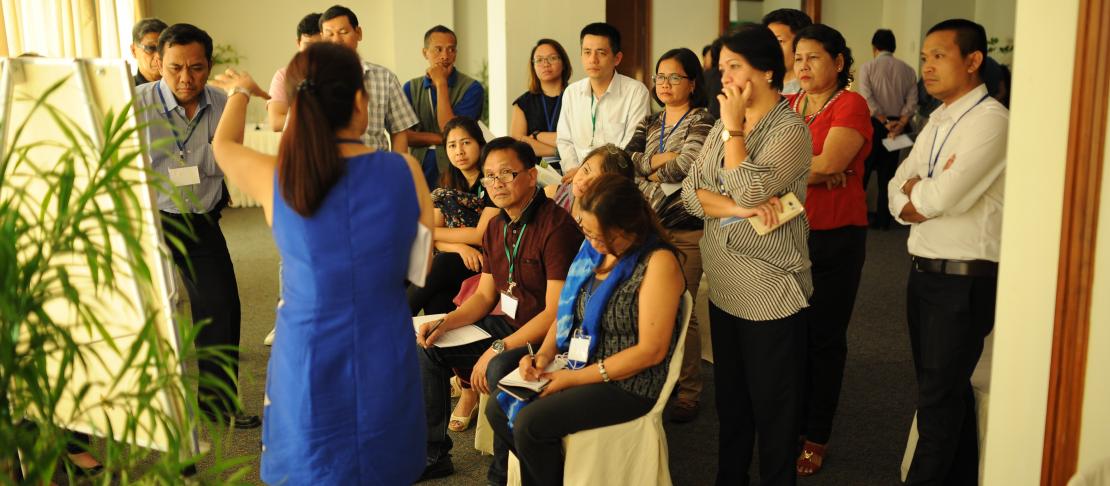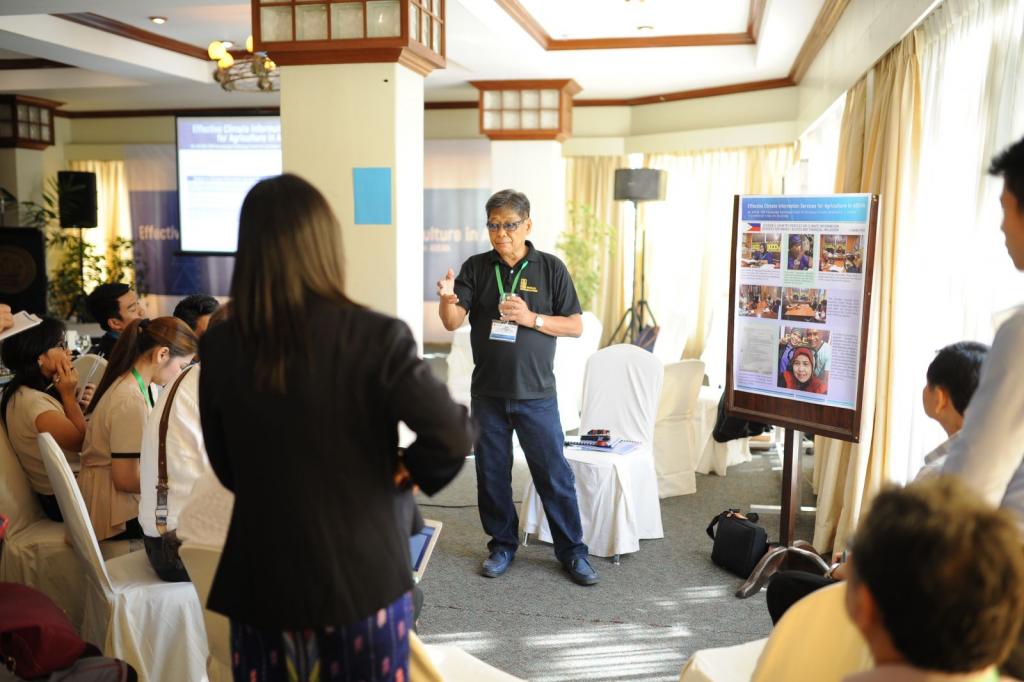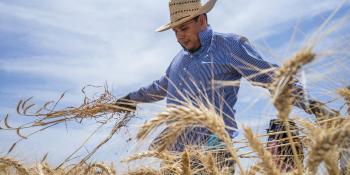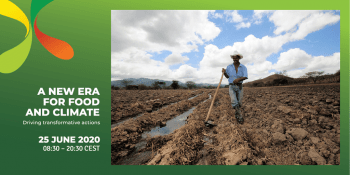Sharing experiences on climate information services to help decision-making in agriculture

Climate information services are seen as vital to the decision-making process in agriculture. Knowledge sharing events facilitate cross-learning and collaboration.
When should farmers plant which types of crops during a specific season? What would be the best management practices to adopt? When should fisherfolks go out to sea? While these are some of the basic questions the agriculture sector should address, these depend largely on the available climate information. Aside from distributing accurate information, climate information services (CIS) should provide advisories and forecasts that are easily understood by the end-users, which include the farmers and agricultural extensionists.
CIS is vital to the agriculture and fisheries sector… Translating such information into easily understandable advisories will guide farmers and fisherfolk. Localized climate information is a necessity,” said Mr Lerey Panes, Assistant Secretary of the Philippine Department of Agriculture.
Member states of the Association of Southeast Asian Nations (ASEAN) rely on a number of practices and technologies for accurate climate information. For example, in Vietnam, a community-based system was established in My Loi Climate-Smart Village of Ha Tinh province for providing agricultural advisories and weather forecasts to farmers. This is supported by the CGIAR Research Program on Climate Change, Agriculture and Food Security (CCAFS) in Southeast Asia.
Another team is working on developing risk maps for the climate-sensitive zoonotic diseases (i.e. diseases that can spread across species, such as Japanese encephalitis, leptospirosis and aflatoxins) in Vietnam. Also supported by CCAFS, the Philippine Federation of Rural Broadcasters (PFRB) uses radio to broadcast programs and spots on climate change and climate-smart agriculture.
Such technical solutions for providing climate information to farmers are welcome; however these should also be supported by institutional and political frameworks. Institutional support would help to bring these services to scale and encourage the wider application of the information in all stages of the agricultural value-chains.
The Philippines, Thailand and Vietnam have experiences in including CIS in their National Adaptation Plans (NAPs). NAPs, which identify adaptation strategies for countries, could provide the framework for planning and providing services to communities.
These experiences, including other initiatives for promoting CIS, were shared during a Knowledge Exchange Event for ASEAN member states, held on 21-23 March 2017 in Cebu, Philippines. Representatives from the respective ministries of agriculture, ministries of environment and hydrological institutes participated in the event. Development partners and civil society organizations involved in the generation and provision of CIS in agriculture were also invited.
Hosted by the Department of Agriculture of the Philippines, the knowledge exchange event was organized by the ASEAN Climate Resilience Network (ASEAN-CRN) and supported by the Deutsche Gesellschaft für Internationale Zusammenarbeit (GIZ) GmbH, the Food and Agriculture Organization (FAO) and CCAFS.

Louie Tabing of PFRB explains how they use radio to broadcast information on climate change to farmers. Such sessions help the participants identify practices which could work in their respective countries. Photo: GIZ
During the event, the participants were able to discuss different initiatives for generating and providing CIS to the agricultural sector. Marketplace sessions were held and presentations given on the role of CIS in agricultural productivity, market access, financial inclusion, risk management and gender inclusion. Sessions for group work provided participants with the opportunity to develop actionable country plans for improving CIS in agriculture. They also identified activities for supporting CIS initiatives across the ASEAN member states. Representatives from the Philippines, Thailand and Vietnam shared how their respective countries made institutional arrangements for CIS and how CIS is promoted in the NAP process.
We hope that this knowledge exchange event could identify policy interventions and institutional frameworks for increasing investment, technologies and management systems to support CIS for agriculture as well as activities for regional collaboration in ASEAN,” said Dr Margaret Yoovatana, Senior Policy and Planning Specialist of the Thailand Department of Agriculture.
Participants also visited Ormoc City in the nearby Leyte province to see one of the many communities which are a part of the Philippines’ Climate Resiliency Field Schools. They exchanged their experiences and thoughts on the effective provision and use of CIS. Communities in Ormoc are supported by the Rice Watch and Action Network and the local government unit in pushing for climate-informed, sustainable and resilient agriculture.
After seeing how the Ormoc farmers work together in using CIS to make informed deicsions, Ms Tran Thanh Thuy of the Vietnam Institute of Meteorology, Hydrology and Environment commented that they are looking to bring Vietnamese farmers to Ormoc. She believes the farmers can learn more on downscaling CIS from the Philippines’ model.
This blog post is based on the ASEAN-CRN article on the event, "ASEAN collaborates on climate information services for agriculture".
Read more:
- Weather information systems too complicated for farmers?
- Collaboration brings focused agricultural advice to farmers in Ha Tinh, Vietnam
- One Health, many tools for forecasting climate-sensitive diseases in Vietnam
Amy Cruz is a junior communications specialist for the World Agroforestry Centre Philippines and communication consultant with the CCAFS SEA program.



